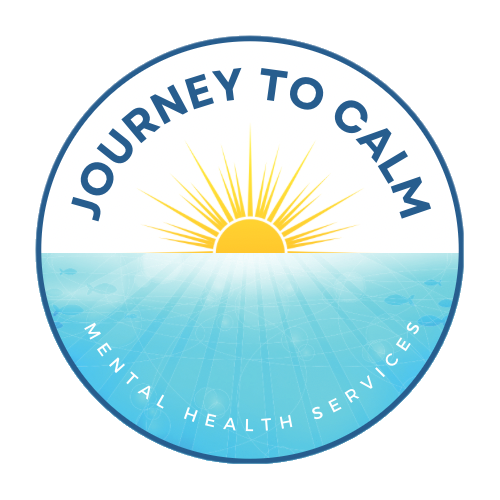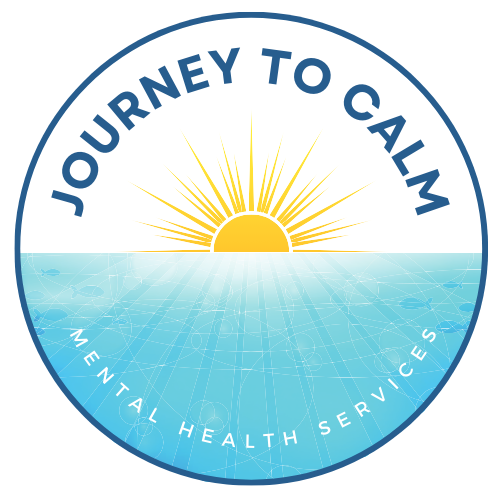Blog
Blog

How Does Mindfulness Reduce Stress? A Path to Calm in the Chaos
Stress can sneak up on you and take hold. There are ways that can help you navigate through stress though. Mindfulness is a simple, yet powerful tool that can help to reduce stress and help you feel more grounded. In this blog post we will look at how mindfulness works, and why it might be the solution you've been looking for.
Understanding Stress: Why We Feel the Way We Do
Stress isn’t all bad. In small doses, it can push us to meet deadlines or escape danger. But chronic stress? That’s a problem. When we’re constantly in “fight or flight” mode, our minds and bodies take a hit. Symptoms like elevated heart rates, shallow breathing, tension, and racing thoughts can become the norm.
Mindfulness can act like a reset button - it can enable you to break free from this cycle and find balance again.
Mindfulness: The Stress-Relief Superpower
Mindfulness helps you shift from reactivity to responsiveness. Instead of spiralling into 'worst-case scenarios' in your head or becoming overwhelmed, mindfulness anchors you to the present. Here’s why it’s so effective:
It calms your nervous system: Deep breaths and focused attention signal to your brain that you’re safe, switching you out of “fight or flight” mode.
It interrupts the stress loop: By focusing on what’s happening now, you stop replaying stressful events or worrying about the future.
It builds emotional resilience: Mindfulness teaches you to acknowledge stress without being consumed by it.
The Science of Mindfulness and Stress Reduction
Research confirms what mindfulness practitioners have known for centuries: it works. Studies show mindfulness can:
Lower levels of cortisol (the stress hormone).
Improve heart rate variability, a key indicator of stress recovery.
Enhance brain areas linked to emotion regulation, like the prefrontal cortex.
Reduce symptoms of anxiety, depression, and burnout.
Mindfulness doesn’t just help you feel better in the moment - it builds a long-term resilience to stress.
How Mindfulness Reduces Stress in Real Life
How does mindfulness actually help when you’re in the middle of a stressful episode? Let’s break it down:
A Pause Button for Overthinking
Stress often stems from a cluttered mind. Mindfulness encourages you to pause, breathe, and focus on what’s happening now. This clears mental clutter and helps you approach challenges with clarity.
A Way to Respond, Not React
When stressed, it’s easy to lash out or shut down. Mindfulness creates a gap between stimulus and response, allowing you to choose thoughtful actions instead of knee-jerk reactions.
A Connection to Your Body
Stress often shows up as physical tension - this could present as tight shoulders, a clenched jaw, or a racing heart. Mindfulness helps you tune into these sensations, release tension, and soothe your body.
Easy Mindfulness Practices to Reduce Stress
The best part about mindfulness is that it's so simple to incorporate into your life. Here are a few practices to help you stress less and breathe more:
Mindful Breathing
Take a moment to focus on your breath. Inhale for four counts, hold for four, and exhale for four. This slows your heart rate and calms your mind.
Body Scan Meditation
Close your eyes and bring your attention to each part of your body, starting at your toes and working up to your head. Notice and release any tension.
Grounding Exercise
If you're feeling overwhelmed, name five things you see, four you can touch, three you can hear, two you can smell, and one you can taste. This anchors you to the present moment.
Gratitude Pause
When stress hits, pause to reflect on one thing you’re grateful for. Gratitude shifts your focus away from stress and towards positivity.
Mindfulness is a Skill, Not a Quick Fix
It’s important to remember that mindfulness isn’t about eliminating stress entirely - that’s impossible. Instead, it’s about building your capacity to handle stress. Like any skill, mindfulness takes practice. The more you do it, the more natural it becomes.
The Ripple Effect of Stress Reduction
When you use mindfulness to manage stress, the benefits go beyond your own well-being. You’ll find:
Better relationships: Stressing less can help you connect more deeply with loved ones.
Improved productivity: A clear mind leads to better focus and decision-making.
Greater joy: Without stress clouding your days, you’ll notice and appreciate life’s small blessings.
Ready to Stress Less and Live More?
Mindfulness is your invitation to a calmer, more present life. It’s about finding peace in the middle of life’s storms and learning to navigate challenges with a clear mind and open heart.
If you’re ready to take the first step, I’ve created something just for you: a free e-guide, “5 Ways to Transform Your Life Using Mindfulness.”. You can getting it by clicking the image below:


